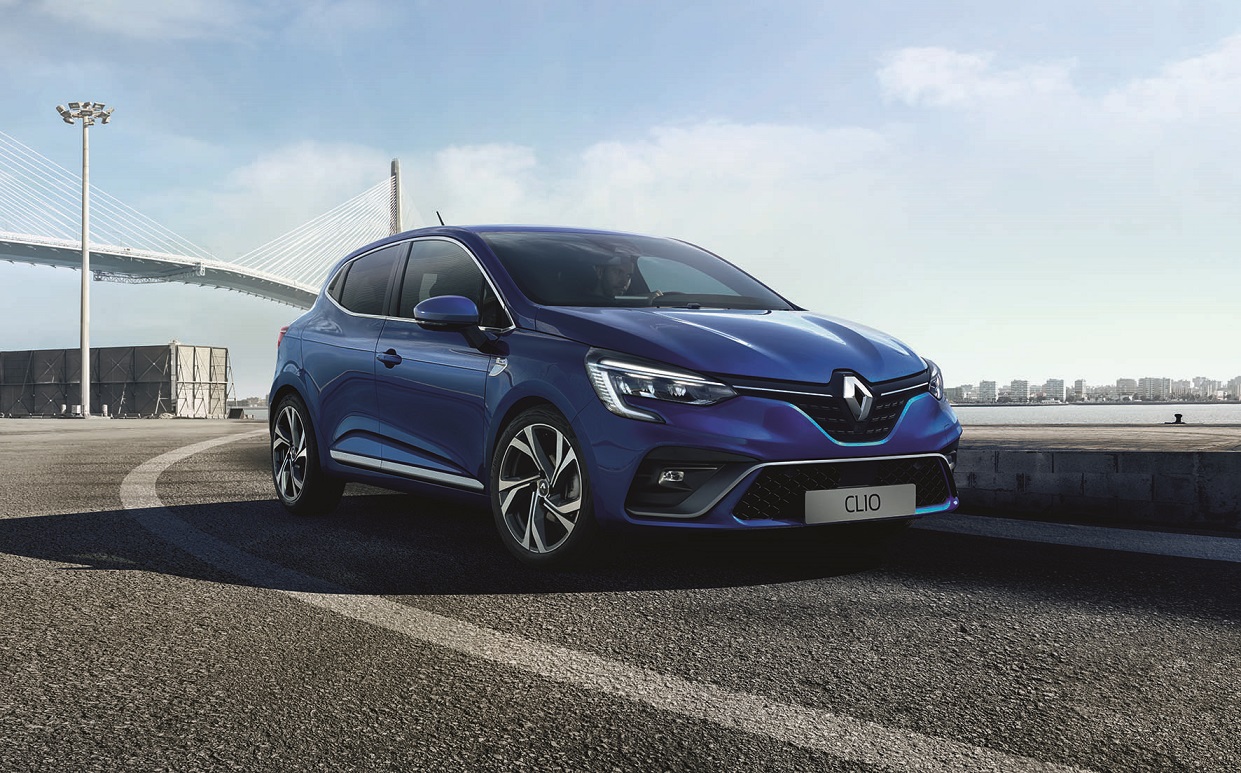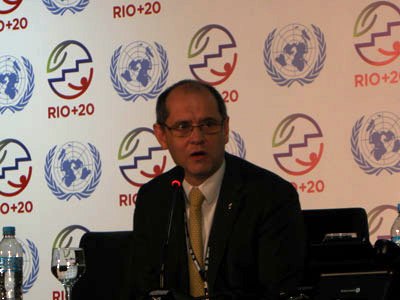

The United Nations has declared 2012 the International Year of Sustainable Energy for All. This year also marks the 20th anniversary of the 1992 Rio Earth Summit, which to this day remains the biggest-ever meeting of world leaders. All of which makes it a fitting time to review the world’s energy situation and come up with new ambitious objectives. This is the aim of the Rio+20 Summit, which I am attending. The goal for Renault and the Alliance is to highlight our commitments to sustainable mobility for all, powered by sustainable energy for all.
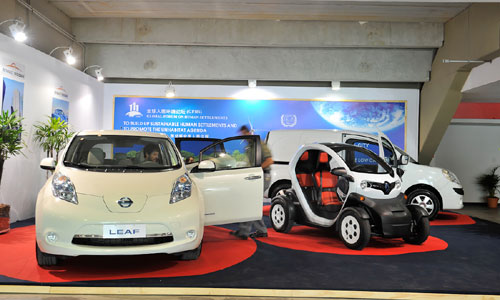
HSBC Arena in Rio, where Renault-Nissan offers EV test-drives
In late 2011 UN Secretary General Ban Ki-Moon asked Carlos Ghosn to join a high-level group tasked with drawing up a road map to meet three major objectives by 2030:
- Ensure access to energy for everyone
- Double the share of renewable energy in total world energy use (from 15% to 30%)
- Double the annual increase in energy efficiency
A noteworthy point is that Renault-Nissan is the only carmaker to figure in the group, and is even the sole representative of the transport sector.
As Expert Leader Environment, Energy and Strategic Raw Materials at Renault, I was called on to act as Carlos Ghosn’s “sherpa” in the group. As such, I took part in the work of the group, the findings of which will be presented to the UN General Assembly on September 24, 2012. The approach is a practical one, aimed at raising the profile of projects on the widespread implementation of existing technologies and services with a view to creating a decisive breakthrough in world energy consumption. Just to remind readers, cars consume some 20 million barrels of oil every day (passenger cars and light commercial vehicles combined), which is twice the daily production of Saudi Arabia and 25% of daily world oil production.

Press conference on sustainable energy for all with Leena Srivastava, TERI and Robert C. Orr, UN Assistant Secretary-General
The challenge is huge, and one that has to be taken on immediately given the inertia of the world’s automotive fleet and the demand for individual mobility in emerging countries. Millions of people joining the middle classes aspire to this mobility and the first thing they want to buy is a car. The car ownership rate in theUSAis 800 vehicles per 1,000 people and in Europe 500 vehicles per 1,000 people, while inChinathe rate is just 50 per 1,000 and inIndia15 per 1,000. Chinese consumers bought 600,000 vehicles in 1999. Last year they bought more than 17 million. Action needs to be taken straight away!
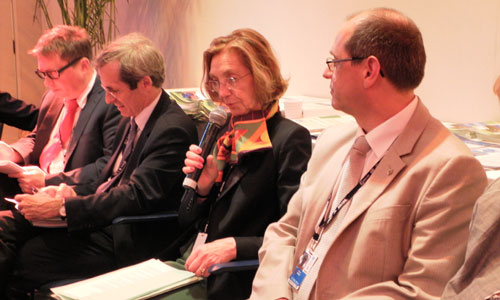
At the French Pavilion at Rio+20 with Nicole Bricq, French Minister for Ecology, Sustainable Development and Energy
We cannot wait for a technological revolution that will take place 20 years from now. We have to introduce as quickly as possible technologies that reduce our energy consumption and speed up diversification in the automotive industry. We have to devise ingenious ways of saving energy, and Renault is particularly well placed to respond to these challenges.
Our progress on internal combustion engines is indisputable, as shown by the Energy range, which will be extended this year with a new cutting-edge gasoline powerplant with impressive performance on fuel consumption and CO2 emissions. The key, though, is being able to roll these technologies out in the medium term in growing markets. But fuel not always being of the highest quality in these countries, we have to develop innovative public-private partnership to accelerate the implementation of efficient fuels worldwide, as with the Auto-Oil programs in the USA and Europe in the 1990s that helped to make our markets the most fuel-efficient the world.
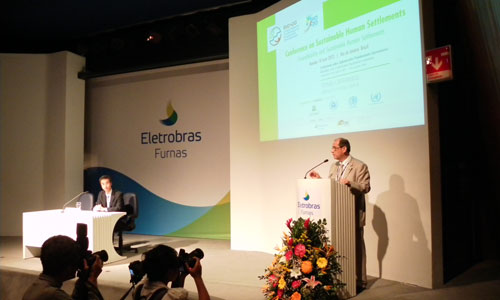
Receiving the "Green Award for mobility" by NGO Global Human Settlement, 18/06
A second lever is to diversify the energy mix in the automobile sector, which suffers from a historical addiction to oil, still representing 95% of global fuel, through the development of fuel that relies on locally available resources and that is respectful of the environment. Brazil, with bioethanol, is an example that can not be generalized, given the conflicting uses of biomass. But looming on the horizon of 2020, are second generation biofuels valuing agricultural waste, and later, perhaps, algae.
Also vital is the development of widely affordable and energy-neutral electric vehicles. All forms of electricity are accepted, the problem being not the electron’s quality but its origin, stemming from production modes that are becoming more carbon-efficient with each new year. Our electric vehicles are also zero-emission in use and make a considerable contribution to improving air quality. Our commitment is clear: a complete range of widely affordable electric vehicles by the end of 2012. Three of these are already available and are available for test-drives at Rio+20: Kangoo Z.E., Fluence Z.E. and Twizy, and the delegates seem enthusiastic about them.
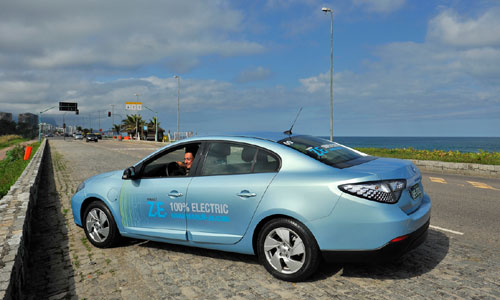
Taking part in this preparatory work has allowed us to share and confront scenari on the future of energy on this planet. The energy revolution ahead of us is a core issue atRio+20, because we cannot forgot that the energy bill weighs on each consumer as well as on each country, as it accounts for several GDP points. Everyone will be concerned by this revolution in the coming years. Let us feed this sustainable mobility for all, dear to Renault, with sustainable energy for all!
View more
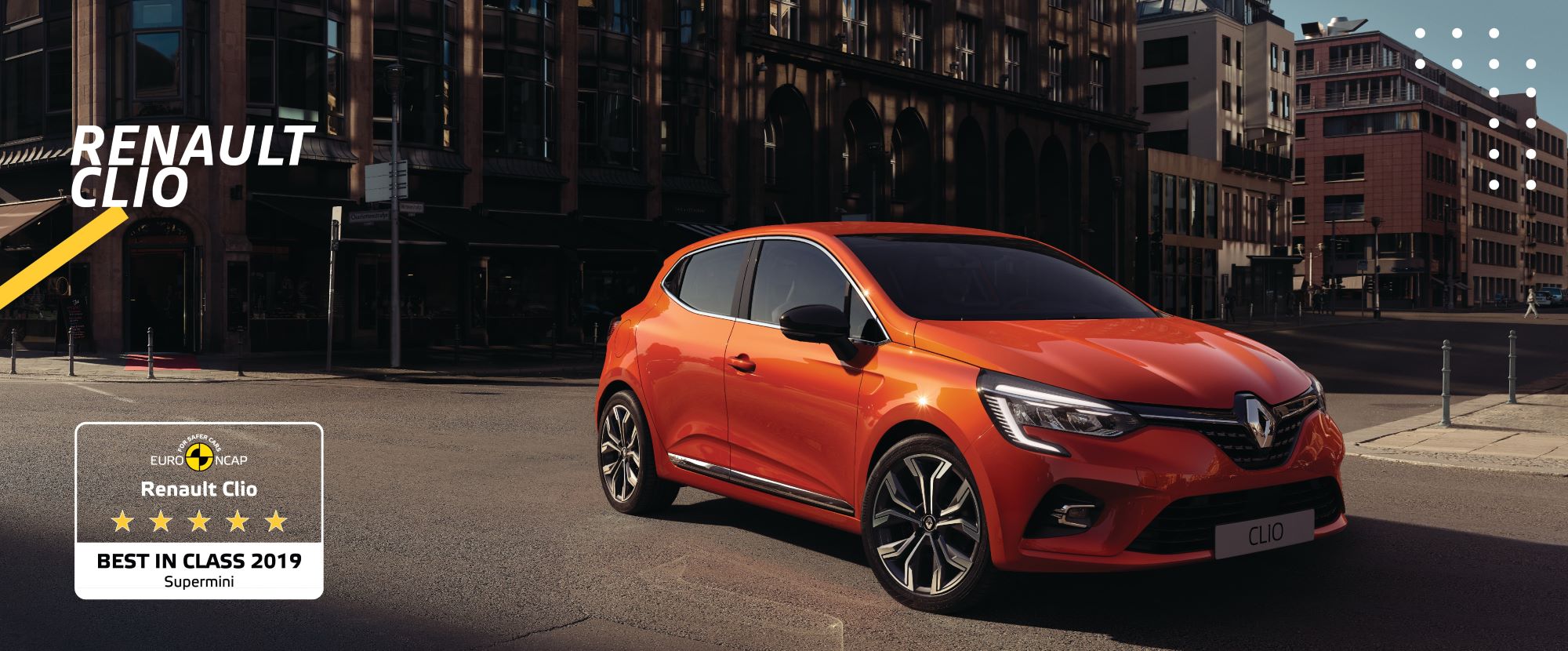
SAFETY: 5 EURO NCAP STARS AND BEST RATING IN ITS CATEGORY FOR THE ALL-NEW CLIO
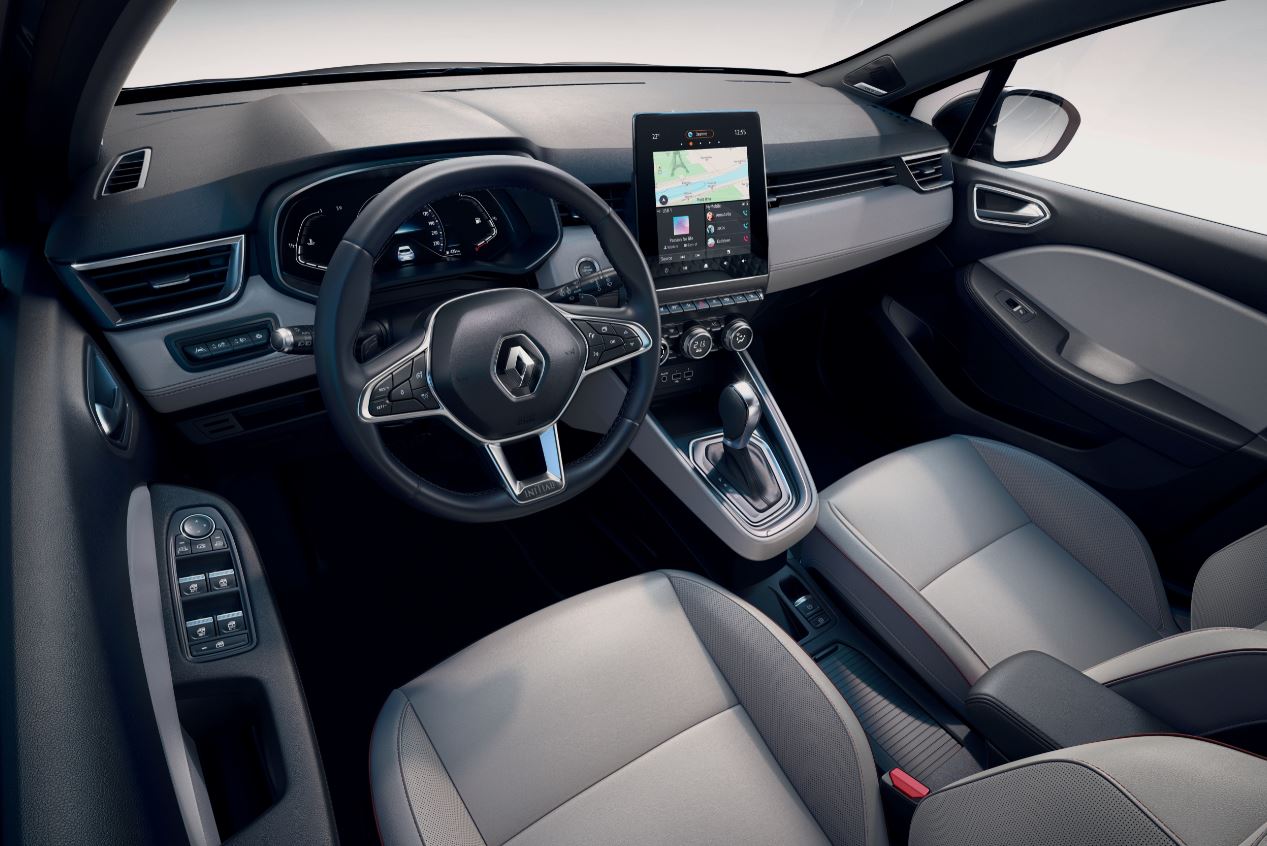
The All-new Renault CLIO: the most comprehensive driving assistance on the market
